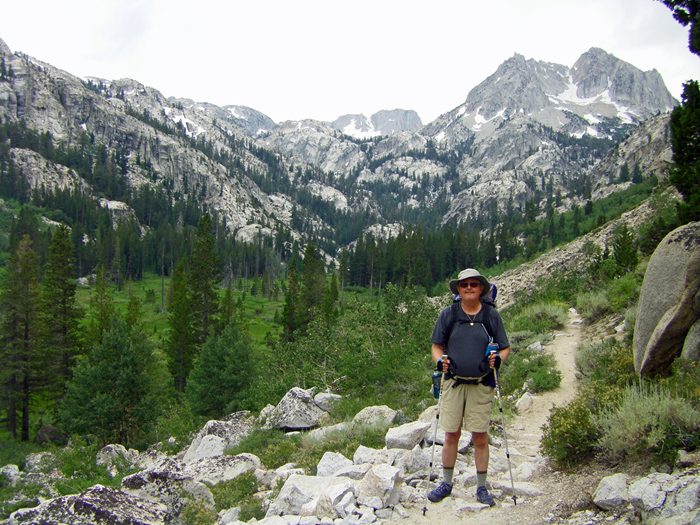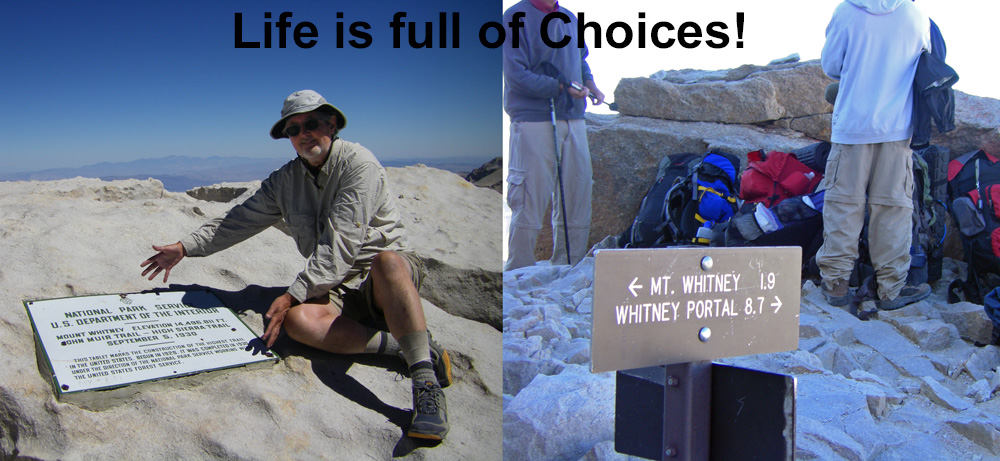


Have you ever been in a romantic relationship that started out fantastic only to fizzle a couple of years (or decades) later? What happened to the dream? The plan? The goal? Did you wake up one day and realize that the two of you had incompatible goals? What did you do about it? Did you give up your own goals so that you could keep walking the same path together? Did you break up? Or did you just argue about it, feeling a ripping sensation as the fabric of your relationship got torn asunder?
I’ve done countless readings for people who are at a standstill in their relationship because each partner wants to move in a different direction, but neither partner wants to give up their path to walk their partner’s path. What should you do?
When a couple gets to a place where their life goals are incompatible, many people try to preserve the relationship above all else. “We made a commitment. Through thick and thin. Sacrifice and compromise are just part of any relationship.” Sacrifice and compromise are only part of a relationship if you decide that the commitment to the relationship is more important than your commitment to yourself to be happy.
You have a right to be happy. Loyalty and commitment are great things, but not at the sacrifice of your own happiness.
People’s paths diverge often. Let’s use a metaphor to see what’s happening here.
You’re walking through the forest of life and you’re holding a map. On this map, you’ve circled a destination that’s fairly far off. But no worries, you are enjoying the scenery and know you’ll get to your destination in time. While walking, you notice other people seem to be walking the same trail with you. You pair up and walk together, enjoying each other’s company as you walk. You casually mention your destination and your walking partner mentions his is the same. What fun to have company on the road!

So you walk together, meandering, enjoying the landscape. You stop sometimes to camp, get your strength back, and replenish supplies. So far, so good. Occasionally your partner wants to stop and you still have energy to keep going, but you like walking with this person so much that you agree to stop more often than you would if you were alone. You don’t want to leave them behind.
After a while you check in with each other to make sure you’re still heading in the same direction. Yep! So you keep walking together. Maybe you even make a commitment to each other to stick together on the trail no matter what. Feels good to know someone will always be with you, watching your back.
There comes a day, however, when you start rethinking your destination. Back when you started walking through the forest you were pretty sure about your destination, but now that you’ve been walking for a while and you’ve seen so many different paths, you start to wonder if perhaps there’s a different destination you’d like to have. You tentatively mention to your partner that you’re wondering now if the destination should be changed. Your partner is still committed to the destination and wants to keep going. You agree to keep going.
But as you continue walking you’re getting a strong feeling that you should select a new destination. You don’t want to disappoint your partner and you certainly don’t want to walk alone now that you’ve gotten used to walking together, so you try in little and subtle ways to get your partner to start thinking about other destinations. Your partner feels manipulated and worried. So you stop talking about it.
You start to slow down. You camp longer. Every day you walk is taking you closer to a destination you don’t want to go to, so you start dragging your heels a little. You need time to think. Your partner doesn’t understand why you aren’t walking energetically anymore. You start to argue and are irritated with each other more often. Something isn’t right anymore.
Finally you just tell your partner that you no longer wish to reach your original destination and you feel you must go in a new direction. You stop walking and start really discussing the situation. You try to get your partner excited about the new destination you’ve picked but your partner still wants to go to the original destination circled on your map. You are at an impasse.
First, you can decide that having someone to walk with is more important than reaching your desired destination, so you give up your own destination and continue to walk with your partner to the original destination. The downside is that this can breed resentment. Why is your partner’s destination more important than yours? The upside is that you will always have a loyal partner to watch your back and take care of you if you slip and fall.

Second, you can decide to leave your partner and follow your own path even if it means you might have to walk alone. The downside is that you may feel lonely and sad, and be scared about being alone in an emergency. The upside is that you may meet someone else who is heading to your new destination that you can walk with who shares your excitement for the new destination.
Third, you can stand still on the path and argue with your partner about whose destination is the “right” one. The downside is that neither of you reaches your destination when you stop walking through the forest. The upside is that there is hope that your partner will “see reason” and is willing to try a new destination eventually. In the meantime, neither of you are wasting energy going in the “wrong” direction because neither of you is moving anymore.
Fourth, you could decide, if it’s feasible, to hit both desired destinations. First you go to the original destination together and hang there for a while, then you both agree to go to the new destination and hang there for a while, and then see where you may want to go next. The downside to this is that you have to go somewhere you don’t really want to go anymore, and there’s no guarantee your partner will decide to leave the original destination once you get there, which means you may still end up walking alone and now it’s going to take even longer to get to your new destination. The upside is that you get to continue walking with your beloved partner and are on the same path once again, both of you getting to go to your desired destinations.
It all depends on what’s more important to you. Security or freedom? Commitment to your relationship or commitment to yourself? Loyalty or independence?

No one can make this decision for you, and there is no right or wrong answer. It’s a choice you have to make for yourself, and then you have to live with the consequences.
If you decide to give up your destination to walk to your partner’s then don’t be resentful of the choice you made. Embrace the camaraderie and companionship you’re creating, and remember that you value the companionship more than the destination.
If you decide to leave your partner and walk your own path, then don’t feel guilty about choosing the path that you believe will make you happy. Let your partner go with love. You both have a right to be happy. Be open to finding new walking partners when you’re ready.
If you decide to stand still while you figure it out, don’t stay there too long. Don’t hold your partner back from reaching their destination. That’s not fair. At some point you need to get up and get moving again, even if that means separating.
And if you decide to try to hit both destinations, don’t be surprised or resentful if your partner decides to stay at the original destination while you go on to yours alone. You need to know that if you give up your path to walk someone else’s, that they may not decide to walk yours with you later. It’s a risk you must take with your eyes wide open. No one forced you to leave your own path. Take responsibility for your choice.
In the end, you are completely responsible for your experience. When you were handed the map of the forest of life you began making choices that would lead you in certain directions. Along the way you had many opportunities and options. You are where you are now because of every choice you made. If you don’t like where you are, make different choices and go a different way.
While you are on the path you will encounter thousands of other people walking. Some may walk with you for a time. Some you may never interact with. And maybe there will be one partner with whom you can happily share your entire journey. If you find such a person, hold on to them. And if you never do, remember that you can still enjoy your journey if you’re just walking with yourself.